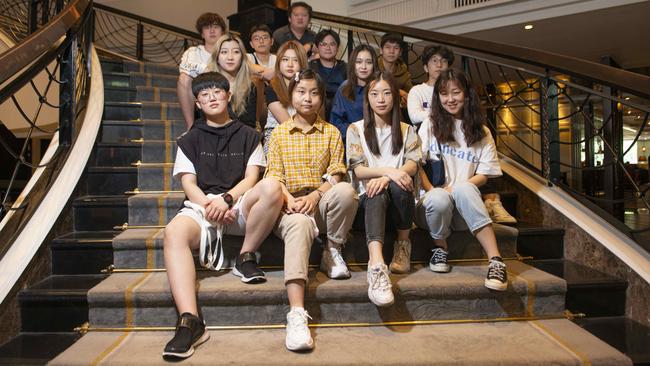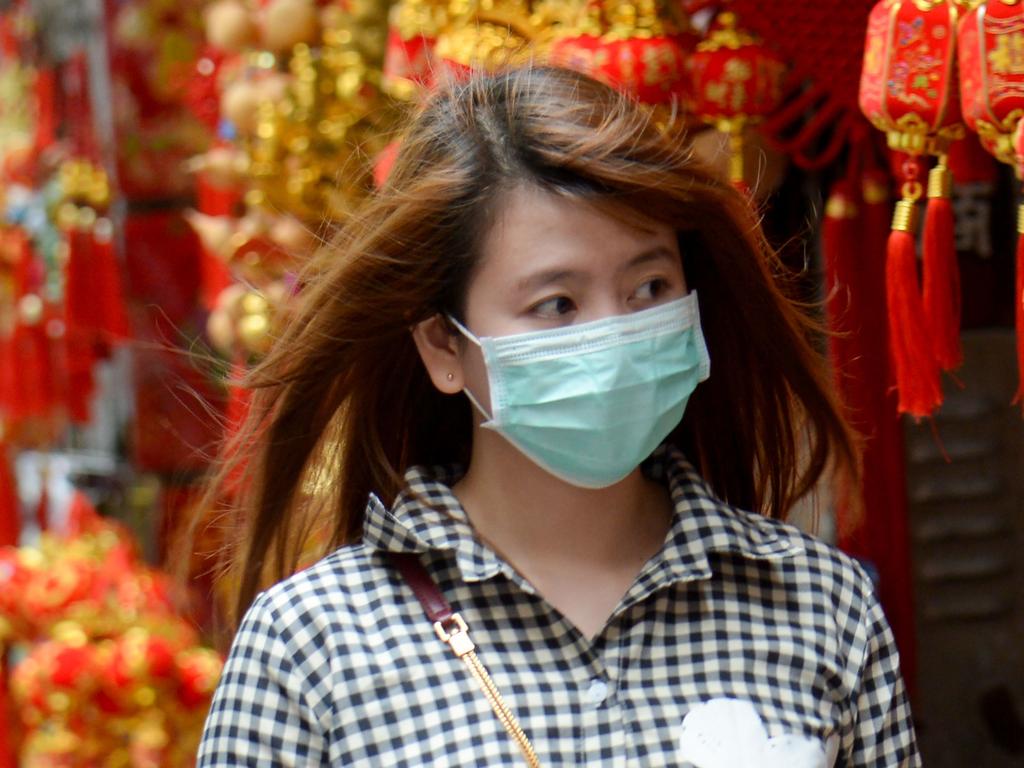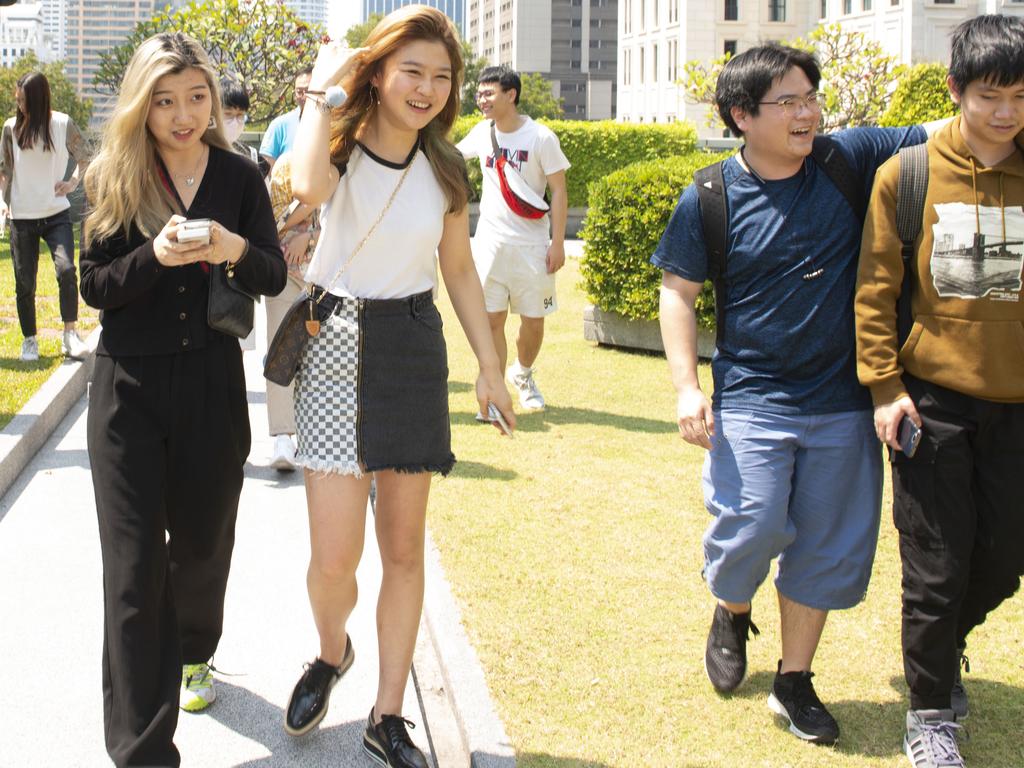Coronavirus: 1500 Chinese students able to beat travel ban
The number of Chinese students beating the coronavirus travel ban by arriving in Australia via third countries is growing.

The number of Chinese students beating the coronavirus travel ban by arriving in Australia via third countries is rapidly growing, with nearly 1500 entering the country in two days.
Federal government figures show 1477 students arrived in Australia on Friday and Saturday, with thousands more expected in the coming week now that Chinese students and their parents have seen the ban can be successfully bypassed.
The largest group of arriving students are coming through Malaysia. Thailand is also a major transit country.
The students are taking advantage of an exception to the ban which allows travellers from China to sit out a 14-day quarantine period in a third country and then come to Australia.
Federal Education Minister Dan Tehan has made it clear that remaining in a third country for 14 days meets the coronavirus quarantine requirement for incoming Chinese students.
The broad ban on direct travel between China and Australia still remains (except for Australian citizens and permanent residents) but the government announced at the weekend it was loosening restrictions for Chinese school students enrolled in Year 11 and 12 in Australian schools.
Currently 760 of them are stranded overseas and these students will be able to apply for an exemption to the travel ban if they pass health checks and spend 14 days in self-isolation once they arrive in Australia.
The government is preparing plans to allow small groups of Chinese university students to fly directly from China to Australia from next week if medical advisers give the all clear.
Fears were sparked on Sunday that the incubation period may need to be longer than the 14 days some authorities, including Australia, have currently built into their quarantine systems.
It came after a Chinese man reportedly first started showing symptoms 27 days after coming into contact with a sick relative.
Australia’s chief medical officer, Brendan Murphy, confirmed that more than 78,000 cases of COVID-19 had been reported worldwide, with about 2450 people having died from the virus.
Professor Murphy said a seventh case of the virus had been confirmed among the Australian evacuees from the Diamond Princess cruise ship, who are quarantined at a facility in Darwin.
“That person is in the process of being taken to Queensland,” Professor Murphy said on Sunday. “All seven, I’m advised, are in good health and stable.’’
He said all of Australia’s original 15 cases had come from Hubei province over a fortnight ago.
“Ten of those 15 have cleared the virus and are well, and the other five are well but just waiting for final tests to clear the virus before they return to the community,” Professor Murphy said.
“That’s all good news. We are prepared for further eventualities but, at the moment, things are well contained.”
UNSW is still waiting for student visas to be reissued to three of its students who left China before the travel ban was announced on February 1 but arrived on February 2 after it was implemented. The three were held in detention by border force officials at Sydney airport, had their student visas cancelled and were given temporary 30-day visas to enter Australia.
Classes at UNSW started a week ago but the temporary visas do not allow the students to study.
Stephen, a Chinese student doing an engineering/commerce double degree at Monash University, arrived in Melbourne last Thursday after spending 14 days in Bangkok. He said he understood why the Australian government had to implement the travel ban but said that, at first, the information from the government to students who were stranded by the ban was very unclear.
“People were very anxious. Especially me because I was about to come to Melbourne to do an internship,” he said.
He originally booked to fly from Shanghai to Melbourne on February 2, the day after the ban was introduced. On the advice of an education agent, he decided to go to Thailand for a 14-day quarantine, although while in Bangkok it was not clear he would be successful in reaching Australia.








To join the conversation, please log in. Don't have an account? Register
Join the conversation, you are commenting as Logout